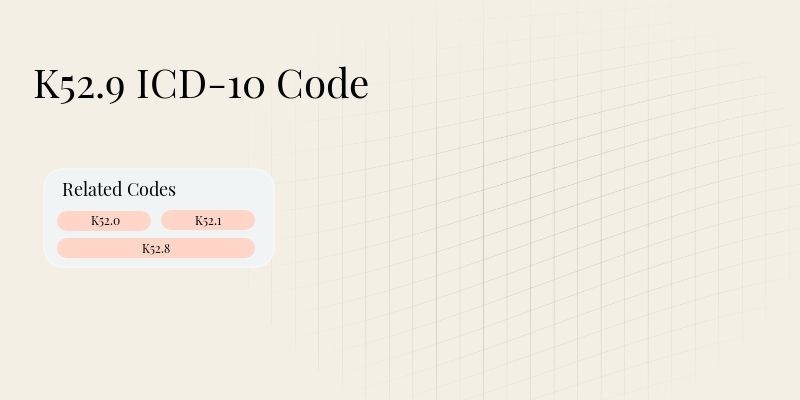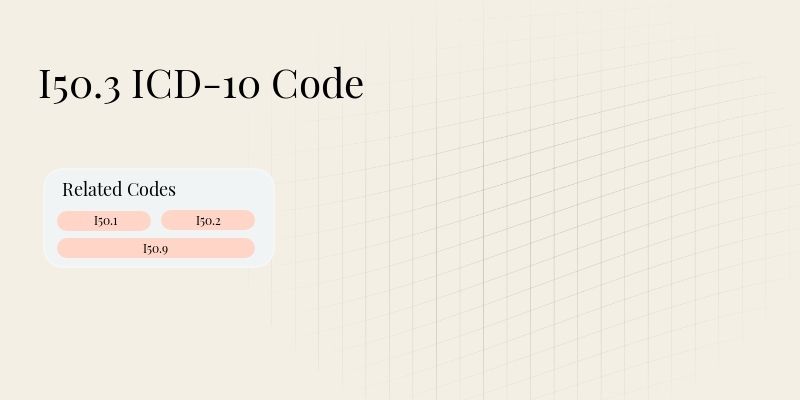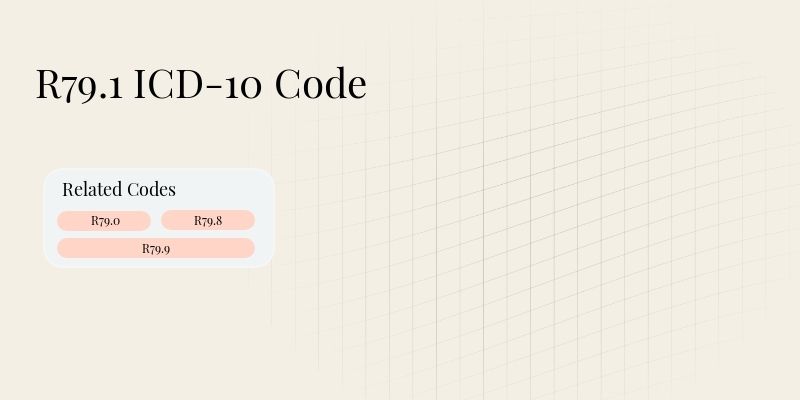
K52.9 ICD-10 Code: Chronic Diarrhea

Key Takeaways
- What K52.9 ICD-10 Code Covers: This code pertains to chronic diarrhea without a specified etiology. It encompasses cases where the cause of diarrhea is unclear, making it essential for accurate documentation and reimbursement.
- Session duration requirements: Documentation should accurately reflect the duration of symptoms, typically lasting longer than four weeks for chronic conditions, to justify the use of this code.
- Who can use the code: This code can be employed by various healthcare professionals, including primary care physicians, gastroenterologists, and specialists involved in treating gastrointestinal disorders.
- Best practice for proper use: Ensure comprehensive patient records, including symptom history and diagnostic tests, to support the use of this code. Proper coding can lead to appropriate reimbursement.
- Example of actual usage: A patient presents with ongoing diarrhea for three months. After ruling out infections and other gastrointestinal conditions, the physician documents the case as chronic diarrhea using K52.9.
What is K52.9 ICD-10 Code
The K52.9 ICD‑10 code identifies chronic diarrhea without a specified cause. This diagnosis is used when patients experience prolonged diarrhea lasting over four weeks, but no definitive underlying condition is identified. It is crucial for healthcare providers to accurately document the patient's clinical history and any diagnostic tests performed to support this diagnosis.
Chronic diarrhea can significantly impact a patient's quality of life, leading to dehydration, nutritional deficiencies, and other health issues. The use of this code allows for appropriate tracking and management of such cases in clinical settings, ensuring that patients receive the necessary care and monitoring.
Services Covered Under K52.9 ICD-10 Code
This code covers a range of services aimed at diagnosing and managing chronic diarrhea. Below is a detailed table outlining these services:
Service | Description |
|---|---|
Initial Consultation | A thorough evaluation of the patient's medical history and symptoms. |
Laboratory Tests | Stool tests to rule out infections or other gastrointestinal disorders. |
Imaging Studies | Abdominal ultrasound or CT scans to assess structural issues. |
Follow-up Visits | Monitoring the patient’s progress and adjusting treatment plans accordingly. |
Who Can Use the K52.9 ICD-10 Code?
Various healthcare professionals can use this code in their practice, including:
- Primary Care Physicians: They often manage initial assessments and referrals for chronic diarrhea cases.
- Gastroenterologists: Specialists who delve deeper into gastrointestinal disorders and provide targeted management plans.
- Nurse Practitioners: They can diagnose and treat patients with chronic diarrhea in various healthcare settings.
- Physician Assistants: They may also diagnose and treat chronic diarrhea under the supervision of a physician.
How to Use K52.9 ICD-10 Code
Proper application of this code is essential for accurate billing and patient care. Here are key points to consider:
- Document Duration: Ensure that the patient's diarrhea has persisted for more than four weeks. For example, a patient presents with diarrhea lasting five weeks.
- Conduct Diagnostic Tests: Document the ruling out of other conditions. For instance, a stool test reveals no infectious agents.
- Comprehensive Medical History: Include details of previous treatments and outcomes. Example: The patient tried dietary changes without improvement.
- Follow-Up Documentation: Keep records of follow-up visits and treatment adjustments. For instance, a follow-up indicates no improvement, prompting further investigation.
Reimbursement Rates for K52.9 ICD-10 Code
Insurance Type | Average Reimbursement Rate |
|---|---|
Medicare | $120 |
Medicaid | $90 |
Private Insurance | $150 |
Disclaimer: Reimbursement rates can change frequently and depend on various factors, including geographic location and specific insurance plans. This article will be updated with average prices as needed.
Benefits of K52.9 ICD-10 Code
The K52.9 code offers several benefits for both medical providers and patients. Below is a comprehensive table of these benefits:
Benefit | Description |
|---|---|
Accurate Diagnosis | Allows for the identification of chronic diarrhea, facilitating appropriate treatment. |
Improved Patient Management | Supports tracking and management of ongoing symptoms, enhancing patient care. |
Insurance Reimbursement | Enables providers to receive appropriate compensation for services rendered. |
Data Collection | Contributes to public health data on gastrointestinal disorders. |
Common Mistakes to Avoid with K52.9 ICD-10 Code
Misuse of the K52.9 code can lead to audits, claim denials, and financial losses. It is crucial to avoid common pitfalls in documentation and coding practices:
- Inadequate Documentation: Failing to provide sufficient evidence of chronic symptoms can lead to claim denials. For example, a provider notes "diarrhea" without specifying the duration.
- Using the Code Prematurely: Applying this code before confirming the chronic nature of the diarrhea can result in billing issues. For instance, coding it after only two weeks of symptoms.
- Neglecting Follow-Up Visits: Not documenting follow-up assessments can make it difficult to justify ongoing treatment. An example would be failing to note a patient’s lack of response to initial therapies.
- Ignoring Patient History: Overlooking previous gastrointestinal issues may lead to inaccurate coding. For instance, documenting a new case without considering the patient’s history of IBS.
K52.9 ICD-10 Code vs other codes
It is essential to compare the K52.9 code with similar codes to ensure accurate coding practices. Below is a comparison table:
Code | Description | Key Differences |
|---|---|---|
K52.9 | Chronic diarrhea, unspecified | Used when no specific cause is identified and symptoms persist. |
K52.8 | Other specified noninfectious gastroenteritis and colitis | Used when a specific noninfectious cause is identified. |
K58.9 | Irritable bowel syndrome, unspecified | Applicable when symptoms correlate with IBS rather than chronic diarrhea. |
Conclusion
The K52.9 ICD‑10 code serves as a critical tool for identifying and managing chronic diarrhea without a specified cause. By understanding its application, services covered, and the reimbursement landscape, healthcare professionals can ensure accurate patient management and appropriate billing practices. It is vital to maintain thorough documentation, accurately reflect session durations, and avoid common coding mistakes to enhance the quality of care provided to patients. As this code plays a significant role in both clinical and financial aspects of healthcare, staying informed about its proper use is essential for all professionals involved in patient care.
Disclaimer: This article is for informational purposes only and does not constitute legal or medical advice. Always consult professional guidelines and regulatory bodies for specific compliance requirements.
Frequently Asked Questions
Reduce burnout,
improve patient care.
Join thousands of clinicians already using AI to become more efficient.

F43.20 ICD-10 Code: Adjustment Disorder, Unspecified
Discover essential insights on the F43.20 ICD-10 Code code for health professionals. Enhance your practice and navigate billing with confidence.

I50.3 ICD-10 Code: Unspecified diastolic (congestive) heart failure
Discover essential insights on the I50.3 ICD-10 Code code for health professionals. Enhance your practice and navigate billing with confidence.

R79.1 ICD-10 Code: Elevated D Dimer
Discover essential insights on the R79.1 ICD-10 Code code for health professionals. Enhance your practice and navigate billing with confidence.
